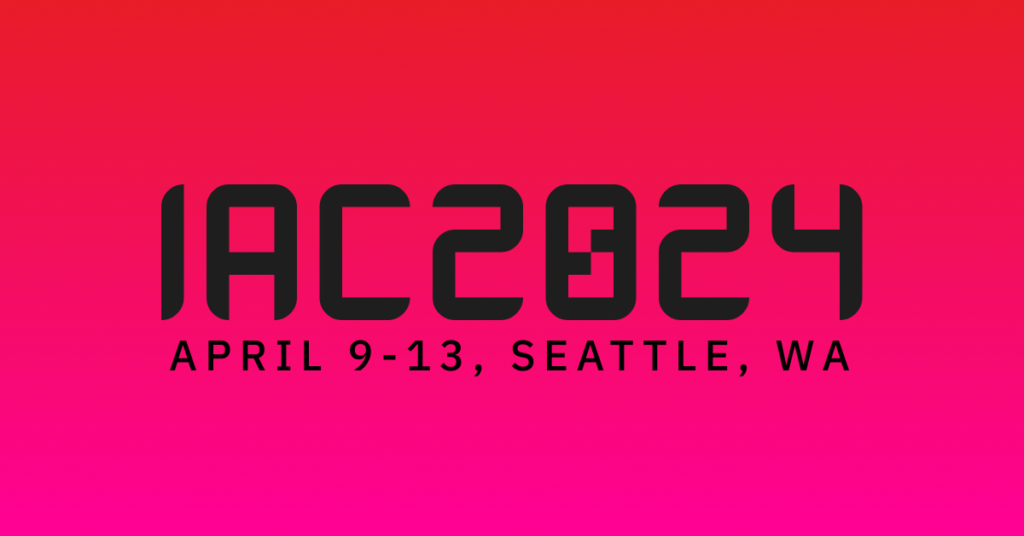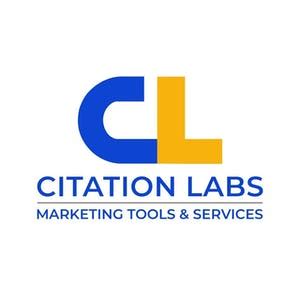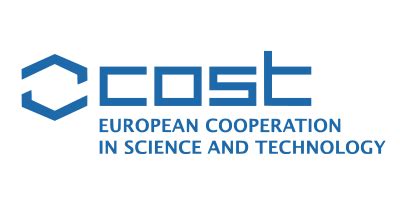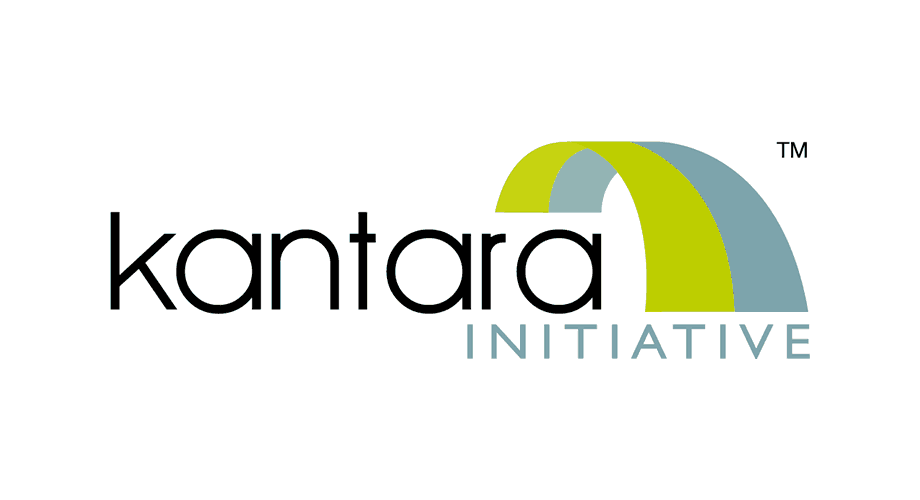Welcome to the Information Architecture Gateway!
The Information Architecture Gateway (IA Gateway or IAG) is a resource for learning and communicating information architecture principles and practices. We welcome you to participate in our effort to create this portal and make it accessible and usable to practitioners worldwide.


What We Do
The IA Gateway is a Science Gateway affiliated with the Science Gateways Community Institute. Our goal is to provide access to an IA Toolkit, made up of tools and resources that we bring together from different disciplines with IA, and to serve other ecosystems to help them learn and discover IA in their own digital products.
Information architects in both academia and industry are working together to develop this online learning and collaboration gateway.
Who We Are
IA Gateway is a professional organization consisting of a dedicated, multinational group of people. Our singular focus is to make the world’s information clearer and easier to use by improving how people learn, practice, and teach information architecture (IA).
Our group includes:
- Taxonomists and ontologists
- Linguists
- Data & information scientists
- Archivists
- And more…

Meet Our Team

Bev Corwin, Co-Founder
Technology Director
Bev is an Independent Advisor, Consultant, Researcher, Facilitator, Founder of Technology Transfer Days (TTD), former Director of Technology of DDC, a co-Founder of the Information Architecture Institute (IAI) a predecessor organization absorbed into World Information Architecture Association (WIAA) and World Information Architecture Day (WIAD).

Shari Thurow, Co-Founder
Search Director
Shari’s doctoral work is in Information Sciences with a specialty in Human/Computer Interfaces, specifically search-friendly user interfaces (UIs). She is the author of Search Engine Visibility, which has been translated into 6 languages, and When Search Meets Web Usability.

Noreen Whysel, Co-Founder
Research Director
Noreen is a NYC-based researcher and information architect, and is an adjunct lecturer at CUNY’s Emmy Award winning BFA program. She is COO of Decision Fish LLC and consults on digital safety and usability at Internet Safety Labs and other standards organizations. She was the Operations Manager at the Information Architecture Institute for 10 years.
We invite those interested in cataloging and developing information architecture resources to join our monthly discussions. Contact us for information.
Speaking Events
The IAG founders have presented a unique perspective on information architecture at industry and partner events worldwide. We also host regular meetups online and in the NYC area. All are welcome!
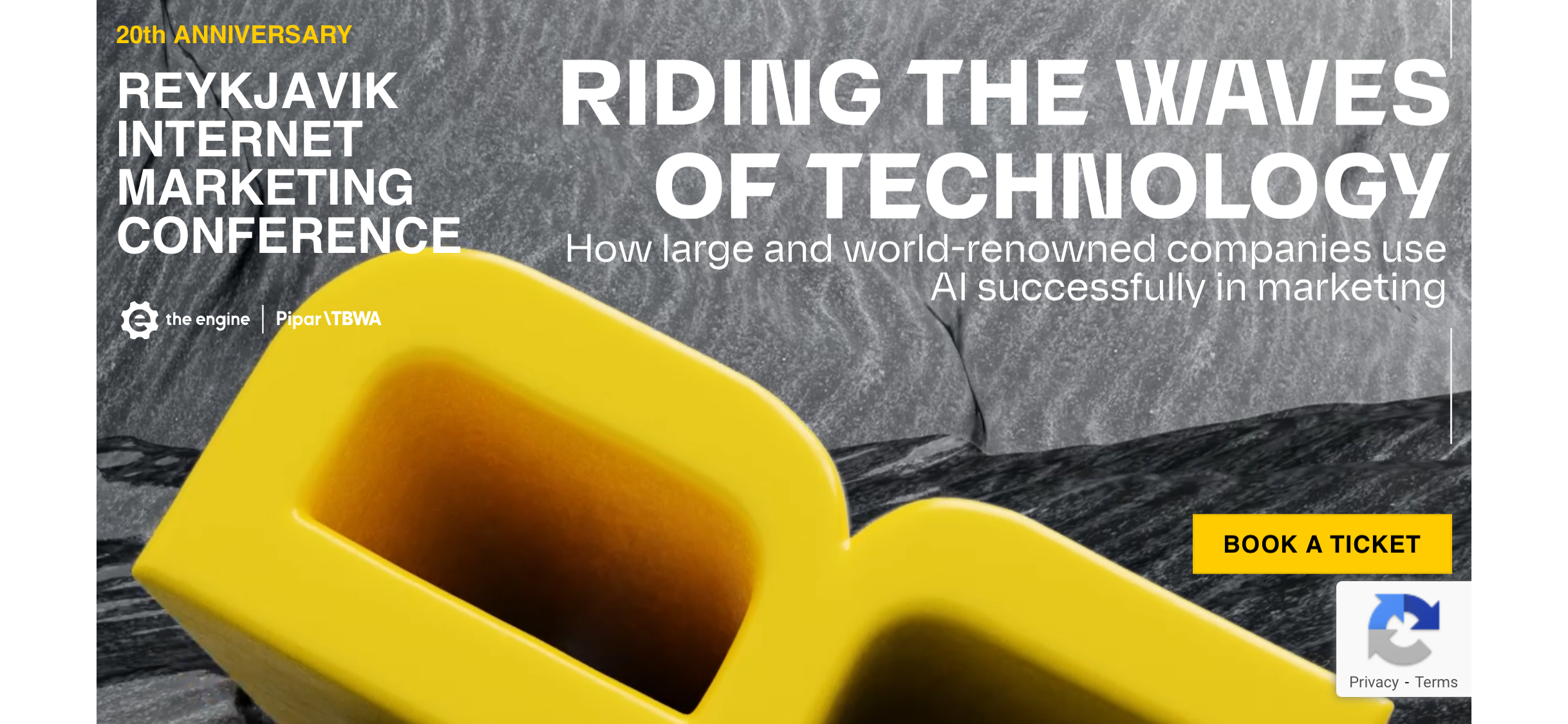
Reykjavik Internet
Marketing Conference
Riding the Waves of Technology
- September 26-28, 2024
- Reykjavik, Iceland
Shari Thurow represents IA Gateway at this premier, annual Icelandic event.

TPAC 2024
- September 23-27, 2024
- Anaheim, CA, USA and Virtual
W3C’s annual conference gathers all work groups to transcend group borders, coordinate solutions to technical issues, with public breakouts.
The IA Conference
- April 9-13, 2024
- Seattle, WA, USA
Poster session: “A visual language to help IA practitioners understand and communicate concepts underlying the Semantic Web and how it is applied in AI applications” presented by Noreen Whysel.
IAC2025 will be May 1-3, 2025 in Philadelphia!
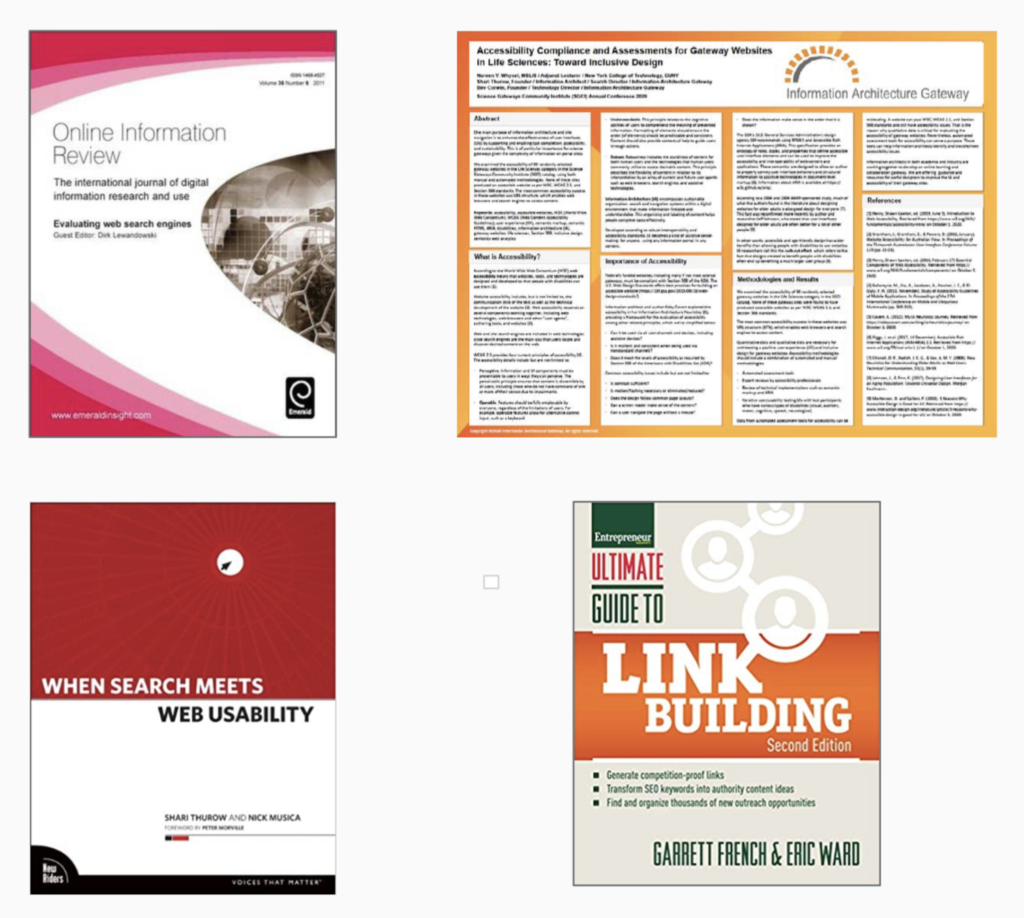
Featured Publications
Read our recent publications and find out what we’re reading.
“Accessibility Compliance & Assessments for Gateway Websites in Life Sciences: Toward Inclusive Design” (Poster) Examination of the accessibility of 50 randomly selected gateway websites in the Life Sciences category in the ScienceGateways Community Institute (SGCI) catalog, using both manual and automated methodologies.
“Information Architecture Gateway” (Poster)
Ultimately, effective information architecture minimizes confusion and efficiency that costs organizations increased sales, a trustworthy brand reputation, a positive user experience (UX), and expensive redesigns.
Our Partnerships and Affiliations
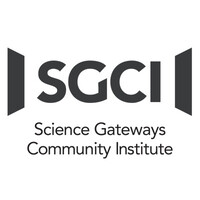


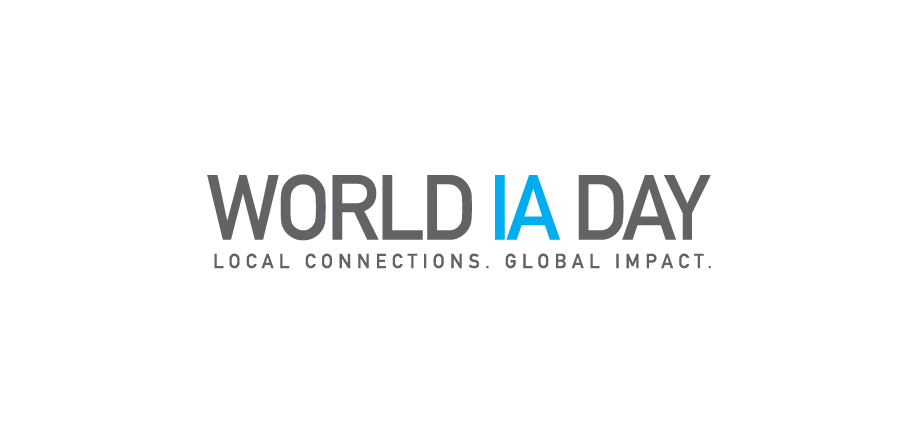
Explore our Partnerships and Affiliations
Frequently Asked Questions
For answers to frequent questions about the Information Architecture Gateway, please select one of the links below.
What is Information Architecture?
Information architecture can be defined as organizing, structuring, and labeling content to support findability, accessibility and usability.
For example, on a website or database, an effective information architecture makes content easier to find and easier to use.
Properly planned, Information Architecture (IA) & site navigation enhances the effectiveness of user interfaces (UIs) by supporting & enabling task completion. Ultimately, effective information architecture minimizes confusion and inefficiency that costs organizations increased sales, a trustworthy brand reputation, a positive user experience (UX), and can lead to expensive redesigns.
What is a science gateway?
According to the Science Gateways Community Institute (SGCI), A science gateways are “…online interfaces that give researchers, educators, and students easy access to shared resources that are otherwise inaccessible or unaffordable for a large segment of the scientific community.”
For details about science gateways, please visit the Science Communities Gateway Institute (SGCI) website.
Where does information architecture fit with user experience (UX)?
The information architecture process should come before a website is designed or developed.
Ideally, information architecture should be an ongoing (iterative) process of website creation and maintenance.
What is the value of information architecture?
One reason information architecture is important is that it enables task completion. Users of your website, intranet, database, etc. will be able to complete their desired tasks (and end goals) more efficiently and effectively.
According to Peter Morville, other purposes of IA are to help users understand:
• Where they are (orientation)
• What they’ve found
• What’s around (context)
• What to expect (information scent)
As a result, IA informs content strategy through identifying word choices (labels). It also informs user interface (UI) design and interaction design (IxD) through playing a role in the wireframing and prototyping processes.
Ultimately, an effective information architecture saves time and money on costly redesigns.
Read details on how to explain the value of information architecture to the C-suite.
The best book about information architecture is called Information Architecture for the Web and Beyond, 4th edition, by Louis Rosenfeld, Peter Morville, and Jorge Arango. It is commonly called the Polar Bear book (due to the cover).


